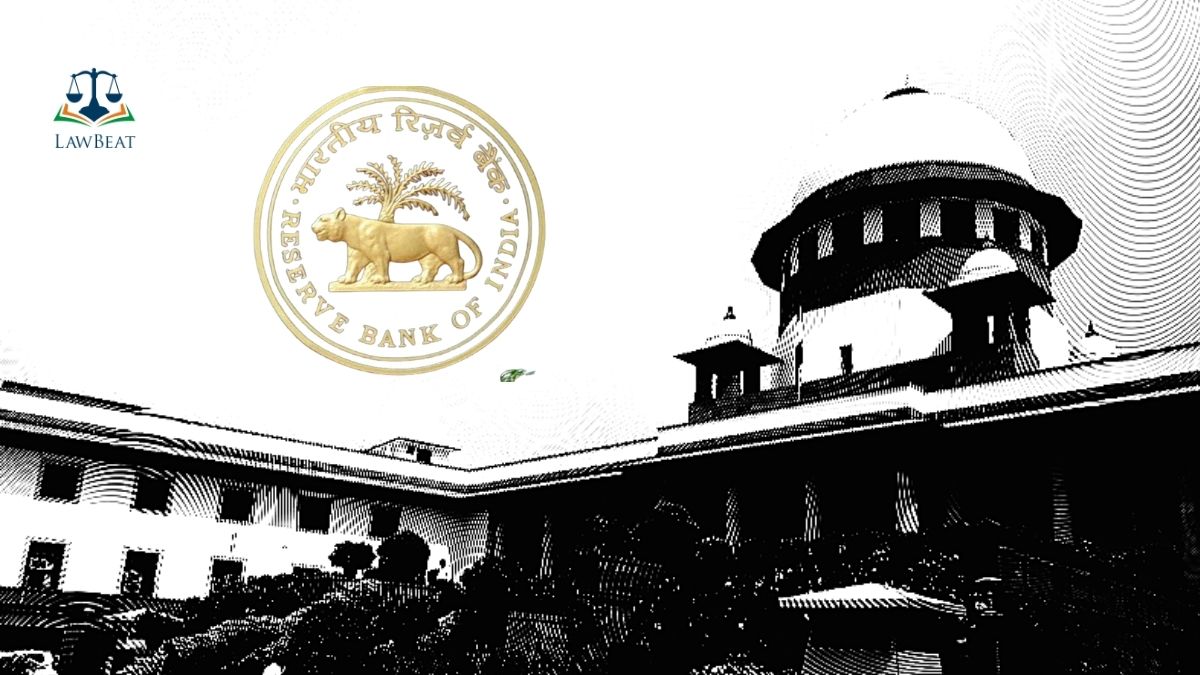Supreme Court asks RBI to develop standardised approach for preparing title search report

SC said that Banks should remain very careful with inadequate title clearance reports, more particularly, when such reports are obtained cheaply and at times for external reasons
The Supreme Court has asked the central banking regulator, Reserve Bank of India and other stakeholders to collaborate in developing a standardised and practical approach for preparing title search report before sanctioning loans and also for the purpose of determining liability, including potential criminal action, of the officer who approves loan.
A bench of Justices J B Pardiwala and R Mahadevan also said that there should be standard guidelines for fees and costs associated with title search reports so as to ensure that they maintain high quality.
"We deem it necessary to observe that Banks should remain very careful with inadequate title clearance reports, more particularly, when such reports are obtained cheaply and at times for external reasons. This concerns the protection of public money and is in the larger public interest," the bench said.
The court made the observations while dismissing a batch of appeals filed by the Central Bank and another, arising from the judgment and order of 2012 passed by the High Court of Madhya Pradesh at Jabalpur.
The High Court allowed the plea and set aside the order passed by the 5th Additional District Judge, Bhopal in civil suit rejecting the plaint under Order VII Rule 11 of the Code of Civil Procedure.
A woman, plaintiff filed the original suit, contending that after death of her husband, his elder brother sold her inherited properties without any partition, into several plots. One such plot was mortgaged with the bank for loan. After default, the bank decided to proceed further in accordance with the provisions of the Securitisation and Reconstruction of Financial Assets and Enforcement of Security Interest Act, 2002.
The bank herein preferred an application under Order VII Rule 11 of the CPC and prayed that the plaint be rejected as the civil court has no jurisdiction to try the same in view of Section 17 of the SARFAESI Act.
The trial court rejected the plaint. The original plaintiff carried the matter in appeal before the High Court. The High Court allowed the First Appeal.
The High court noted that Section 34 of the SARFAESI Act provides that no civil court shall have jurisdiction to entertain any suit or proceeding “in respect of any matter which Debts Recovery Tribunal or the Appellate Tribunal is empowered by or under this Act to determine.” Hence, the Civil Court’s jurisdiction is only ousted in respect of those matters which the Debts Recovery Tribunal or the Appellate Tribunal is empowered by or under the SARFAESI Act to determine, it said.
"The SARFAESI Act is enacted essentially to provide a speedy mechanism for recovery of debts by banks and financial institutions. The SARFAESI Act has not been enacted for providing a mechanism for adjudicating upon the validity of documents or to determine questions of title finally. The DRT does not have the jurisdiction to grant a declaration with respect to the mortgage deed or the sale deed as sought by the Plaintiff. The jurisdiction to declare a sale deed or a mortgage deed being illegal is vested with the civil court under Section 9 of the Code of Civil Procedure," the bench said.
The court pointed out the plaintiff could not have sought from DRT, the relief of being handed over the possession. DRT would have no jurisdiction to grant such relief to her.
The bench also noted in Bank of Rajasthan Ltd Vs VCK Shares & Stock Broking Services Ltd (2023), due to conflicting decisions of benches comprising of two judges, a reference bench of this court was called upon to decide whether the jurisdiction of the civil court is ousted as regards an independent suit against the Bank in the context of the provisions of the RDB Act, 1993, and whether such a suit can be transferred to the DRT with or without consent.
Further, the Supreme Court held that civil court’s jurisdiction to entertain the suit is not ousted, in the absence of any power, the independent suit cannot be transferred to the DRT. The court had also said as there is no power, the transfer of the suit cannot be done with or without consent and that the barring of jurisdiction of the civil court is to be strictly interpreted and not to be readily inferred.
The bench found no error not to speak of any error of law could be said to have been committed by the High Court in passing the impugned order. The court directed the civil suits should now proceed further expeditiously in accordance with law.
